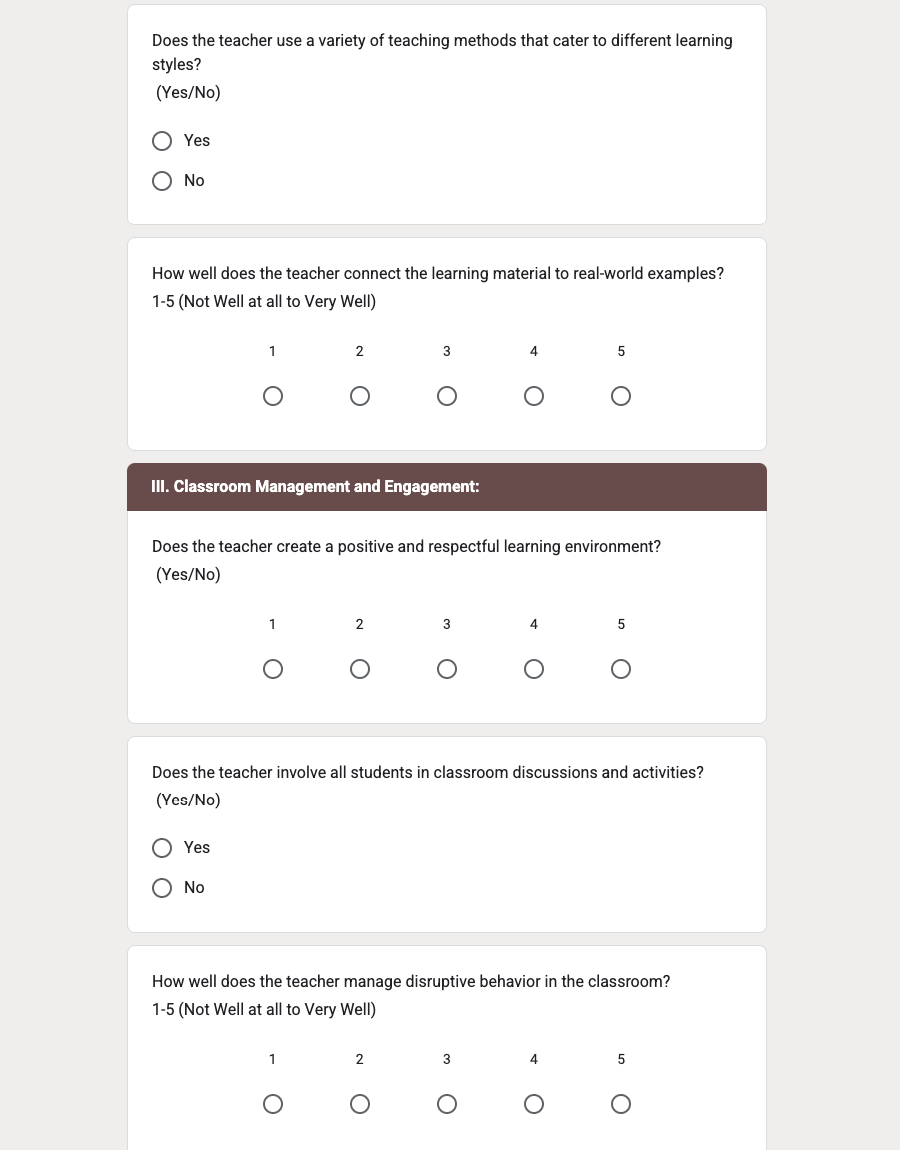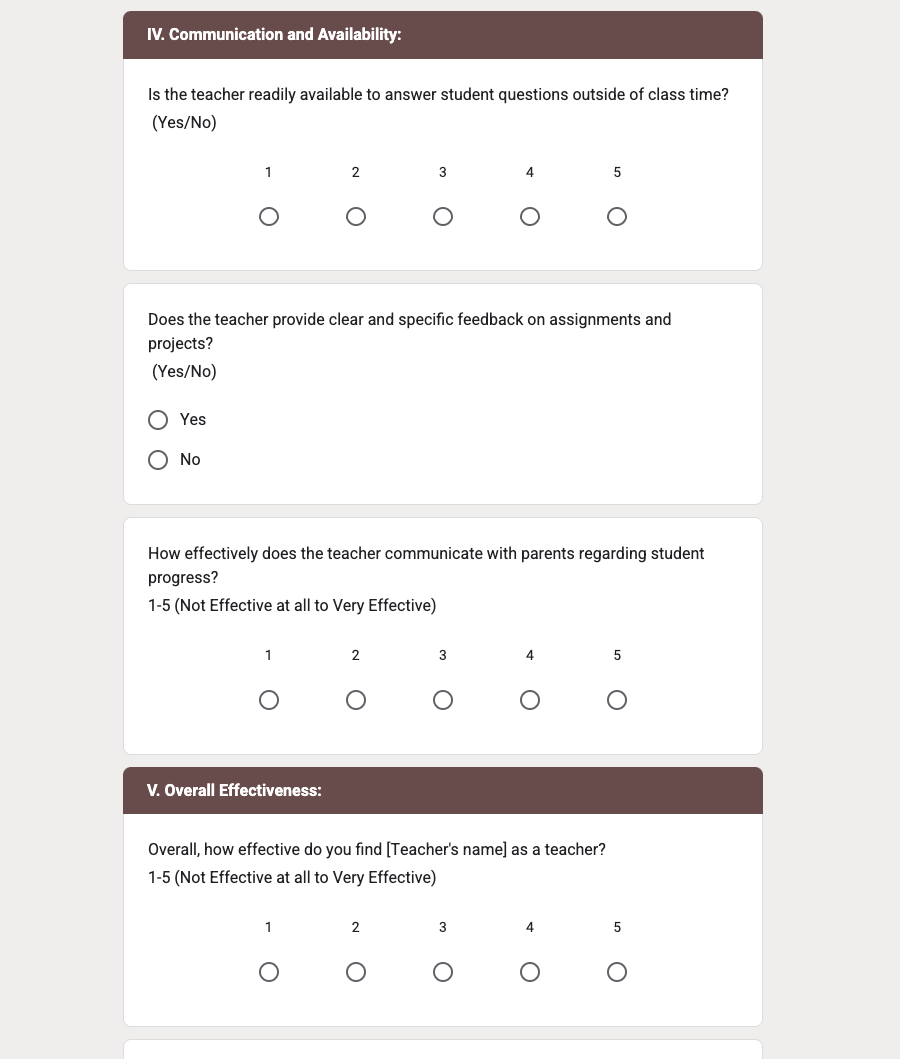Teacher Feedback Form
FREE
Easily gather valuable insights with our Teacher Feedback Form! Copy and customize this user-friendly Google Forms template to fit your needs effortlessly. Share it with students and parents to assess the learning journey and improve teaching effectiveness. Seamlessly embed it on your website or share it digitally for convenient access. Whether collecting online or in print, this form empowers educators to enhance the learning experience by understanding student progress and adapting teaching strategies accordingly.






